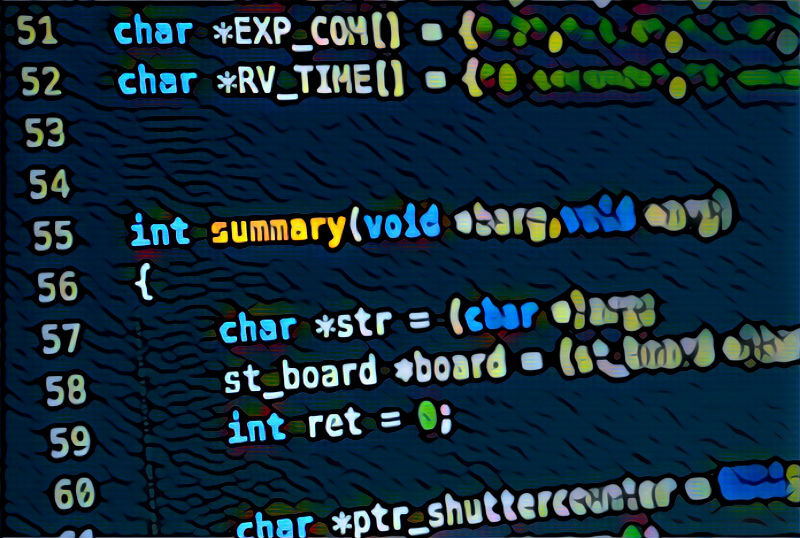Which languages are most in demand in finance: the views of Wall Street recruiters

Specialists of the portal Efinancial Careers asked investment company recruiters to tell them about which programming languages are now the most popular Wall Street. In our blog - an adapted version of this note.
Java
Java is the most popular programming language on Wall Street for many years.
')
“Java specialists are needed to perform various tasks: from developing high-frequency trading systems and managing applications to creating your own risk management platforms for financial companies,” said Jared Butler, head of financial and technological recruiting for North America at Selby Jennings. The Java language is also good for simulating and modeling trading strategies, says John Reed, senior executive director of Robert Half Technology.
The heightened interest of financial sector companies in Java developers is due to the severe lack of qualified specialists of this profile. "At the end of last year, there were only seven candidates for each position in our database, this indicator is much lower than in the case of other programming languages." Reed also said that Java developers may demand a salary that is 10% higher than other specialists in the market.
Python
This programming language has come a long way before it was first used in the Quartz Bank of America program and in the Athena system from JP Morgan. Python is simply indispensable for creating analytical tools and quantum models, which are, according to Schiller, the most important means of creating effective trading strategies for investment banks and hedge funds.
In addition, “Python is being used more and more because of its simplicity, unlike traditional languages,” says Butler, who cited a number of arguments why this language might supplant the aforementioned Java in investment bank operations.
"Programmers can do with ten lines of Python code the same thing as twenty lines of C ++, with a much lower probability of error," the recruiter is convinced.
Banks Merrill Lynch and JP Morgan hire a huge amount of Python-developers. “Bank of America and JP Morgan have built most of their trading systems in Python and continue to attract specialists from this profile. Other banks and investment companies are starting to pay more attention to Python programmers, ”said Nick Vermayer, chief technical recruiter for Pencom Systems.
C ++ and C #
“C ++ remains a popular programming language in high-frequency trading, if only because it is the most effective tool for creating well-optimized backtesting systems and a trading engine for processing large amounts of data,” says Butler.
Schiller agreed with these words, but also added that C ++ is often used to create applications that work with outdated banking systems. “Because of the high costs of introducing new technologies, there is still a demand for professionals who can work with old systems,” she said.
Like Java, C # can be used to solve various problems, including the creation of financial models. This language is in second place in terms of the “scarcity” of qualified specialists, which gives them the privilege and opportunity to receive higher wages. Reed said that C # developers can get 9-10% more money relative to their fellow experts in other languages.
“C # is still used, often in quanta, when developing high-speed trading systems,” explains Christian Glover Wilson, vice president of technology and strategy at Tigerspik.
Other languages
Other programming languages in this material are SQL, PHP, and ETL.
“We see investment companies hiring specialists with different skills, from knowledge of older ETL technologies, such as Informatica, to more advanced tools for working with big data, like Hadoop, HBase, HDFS, MapReduce, Pig, Hive, Impala Flume, says Butler. “ETL technologies are still important for data storage, as well as for storing large financial data sets used, in particular, by investment banks globally.”
On the other hand, the demand for Microsoft Windows Presentation Foundation (WPF) is declining, and HTML5, along with Hadoop, Cassandra and Scala, are becoming more popular on Wall Street ...
“The popularity of data processing technologies such as Hadoop, Cassandra and Scala is growing, we see that more and more financial organizations are introducing them,” said Vermeire. "C ++ and C # tend to become the main development tools, interest in working with WPF is waning, and the use of HTML5 is growing."
Vermayer supported this position: “We are also seeing an increase in demand for technology to transfer large amounts of data, as companies face huge amounts of information every day. Very often they are needed as related technologies in addition to basic programming languages, such as Java or Python. The most sought-after major data technologies are Cassandra, Spark and Hadoop. ”
Other materials on finance and stock market from ITinvest :
- ITinvest educational resources
- Analytics and market reviews
- Infrastructure and trading robots: What programming languages are used in finance
- What a programmer should be able to get a job in finance
- Using FPGA and DSL to speed up HFT trading
- What could be a stack of technologies for high-frequency trading
Source: https://habr.com/ru/post/333908/
All Articles